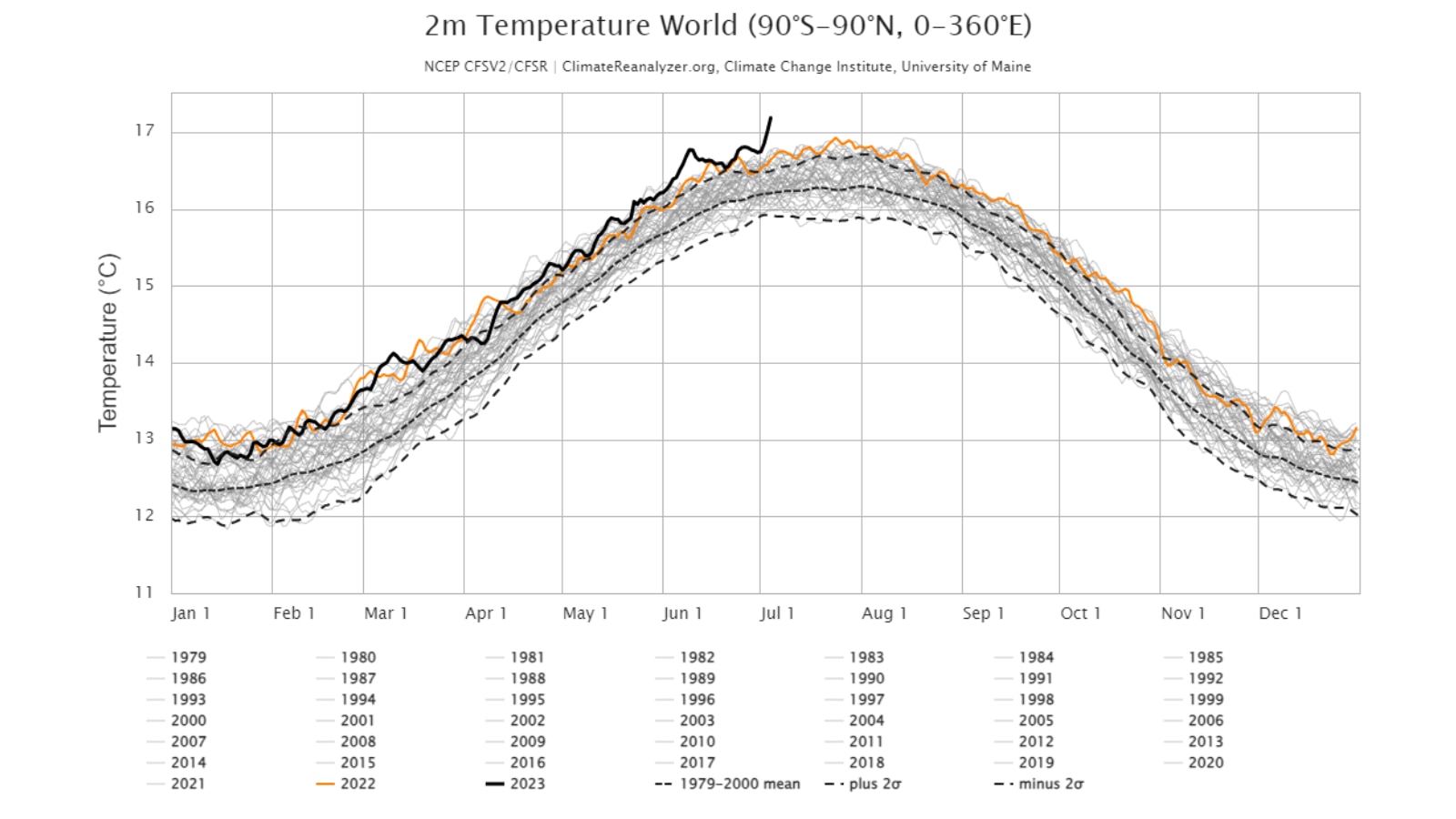Science Behind the Headline: KBTX Chief Meteorologist explains ‘Earth’s hottest day ever’
BRYAN, Texas (KBTX) – Over the past two days the planet’s temperature spiked to its hottest day in decades and likely centuries, scientists say. KBTX Chief Meteorologist Shel Winkley explained the science behind Earth’s unofficial record-breaking highs.
To start, the University of Maine has tracked the surface temperatures across the globe since 1979.
“So we’re talking land, we’re talking water through buoys, through thermometers, everything that we have,” said Winkley.
August 14, 2016: GLOBAL SURFACE average temperature of 16.92°C (62.5°F). It was the warmest day on record.
Until July 3, 2023 when the temperature climbed to 17.01°C
Until July 4, 2023 it climbed to 17.18°C
El Niño + Climate Change means this won’t be where the record stops pic.twitter.com/qgl0rHENen
— Shel Winkley 👍 (@KBTXShel) July 5, 2023
Aug. 14, 2016 was the first hottest day that we had ever experienced, with a global temperature of 16.92 degrees Celsius, or about 62.5 degrees Fahrenheit.
“On Monday, July 3, we hit an average temperature of 17.01 degrees Celsius. It’s the first time that our temperature average has jumped above 17 degrees Celsius,” said Winkley. “That became the warmest temperature, ever, at least in this 44 year span, and then on July 4, it came up to 17.18 degrees Celsius.”
The data the University of Maine tracks only dates back 44 years, so how do we know July 4 was the hottest day ever recorded?
“We’ve had thermometers and sensors that can go back to the mid 19th century, so we know that far back,” said Winkley. “And then we have science that can use tree rings and ice core samples. So to a degree of certainty, the scientists, who are some of the smartest climate minds that we have, can say that at least going back 125,000 years, we believe that this is the hottest temperature that Earth has recorded and experienced since then.”
Tuesday’s temperatures also saw portions of Antarctica jump above freezing for one of the first times ever.
Winkley said locally, this summer has already hit record-breaking heat, and we’ll be impacted in other ways.
“We know how the Texas grid is stressed and things like this, we’ve had a lot of big storms this summer because you’re taking spring-like storms with summertime heat causing a lot of big damaging winds across the United States. And also, insects. The disease that insects carry are not only lasting longer, but they’re moving further north as those warmer climates shift north as well.”
In June, four cases of malaria were detected in Florida, and one in Texas, it’s the first time there’s been local spread in 20 years.







